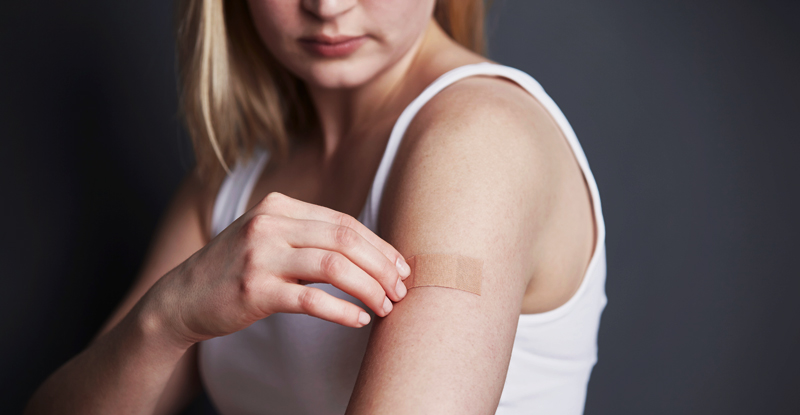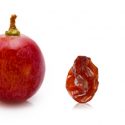Preventing Arm Pain After a Flu Shot
Why does the flu shot make your arm sore the next day?
Here’s the simple answer: The flu shot hurts because someone put a needle into your shoulder muscle and inserted fluid. The complete explanation is a bit more complicated, and it has more to do with your body’s response to the shot than with the shot itself.
The discomfort you feel the next day is an inflammation response to an injury (the shot), as well as an inflammation response driven by your immune system. The inflammation is a sign that your body is making and delivering antibodies to the injection site.
The flu shot is aimed at muscle because your immune system’s response is greater when the vaccine is inserted there. But that means you’ll feel some pain later when you use that muscle.
Why give shots in the arm?
While the gluteus maximus in your butt is a very large muscle, there are some advantages to targeting the deltoid muscle in your shoulder.
First, the deltoid has less fat surrounding it than the gluteus maximus. Most vaccines—including the flu shot—don’t work as well when they are injected into fatty tissue. Second, your sciatic nerve runs down your lower back and into your bottom. A health care provider would risk irritating that nerve—and causing you debilitating pain called sciatica—if they administered a flu shot to your butt.
Third, it’s more convenient to administer a flu shot to a bare shoulder than to a bare butt.
What can you do to limit your discomfort?
Before the shot:
- Take three to five deep breaths. This will help relax your muscles, including your deltoid.
- Distract yourself. Eat some sugary candy or chew gum. This will release feel-good chemicals called endorphins that can reduce your perception of pain.
- Limit your psychological discomfort. Look away if you’re afraid of needles. Tell the health care provider that you don’t want to know when he or she is about to deliver the shot.
- Choose wisely: Ask to get the shot in your non-dominant arm. That way, you won’t aggravate the muscle as you do day-to-day activities.
- Use a pain reliever: Ice your arm for a few minutes and take acetaminophen or ibuprofen. (Talk with your doctor about which pain medicines are safe for you to use.)
After the shot:
- Apply pressure. Compression can be helpful for reducing inflammation.
- Use cold and warm compresses. Ice the area to reduce any swelling. After a few days, try a warm compress to relax your deltoid muscle and improve your blood flow.
- Use a pain reliever. Take acetaminophen or ibuprofen if pain develops in the days after you get the shot.
- Keep moving. Use your arm, don’t baby it. You want to get blood flowing to the area.
Getting your annual flu shot can protect you, your loved ones, and those around you from the flu and its complications. You may experience some soreness in the days after getting vaccinated, but the tips we’ve provided here should help you recover. If you develop more serious complications—such as a high fever, wheezing, hives, or weakness—call your doctor or seek medical attention.
Sources:
www.popsci.com/why-does-my-arm-hurt-day-after-i-get-my-flu-shot
https://share.upmc.com/2016/12/arm-pain-after-vaccinations/
www.cdc.gov/vaccines/parents/diseases/child/flu-basics-color.pdf



